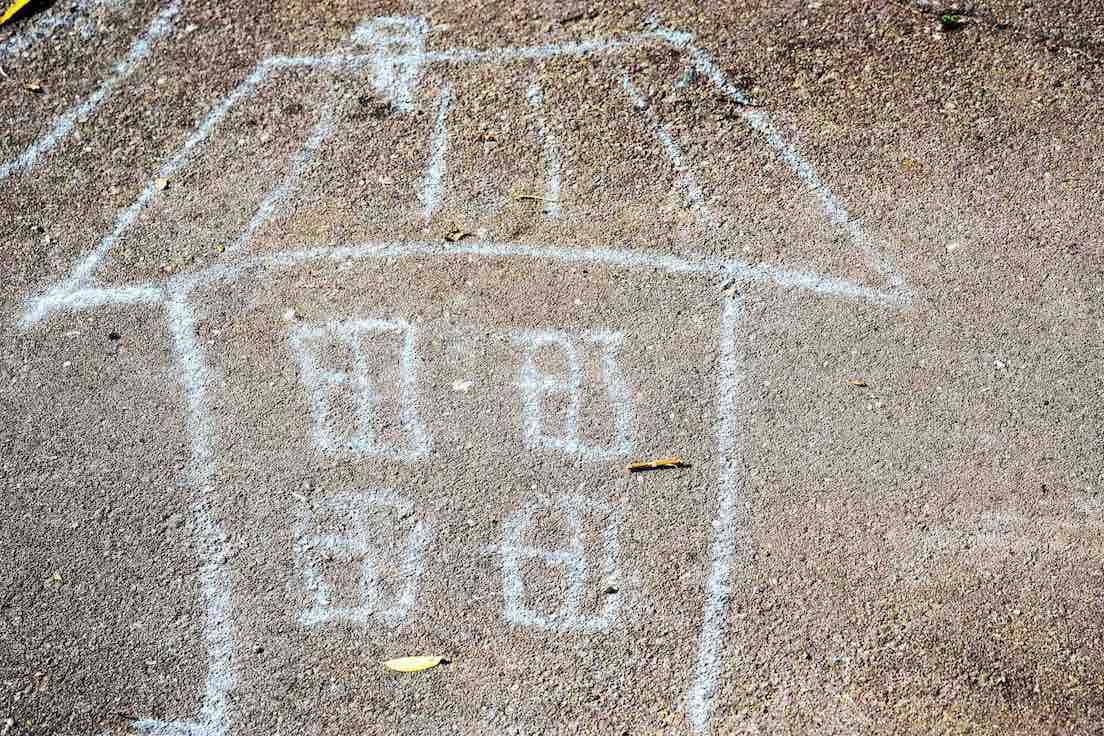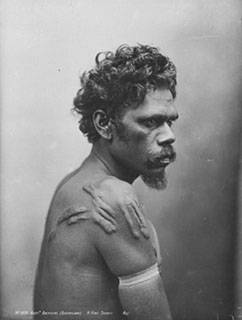Strengthening vulnerable populations and places
Housing first
 UQ research spurs new pilot program that is getting some of the Australian capital’s most vulnerable people off the street.
UQ research spurs new pilot program that is getting some of the Australian capital’s most vulnerable people off the street.
Nearly 20 years ago, Cameron Parsell was working in a homeless shelter and asking himself questions that would trouble him for years.
Recognising that housing is a human right
ISSR Group Leader Dr Cameron Parsell joined the Victorian CEO of the Urban Development Institute of Australia, Danni Addison, and host Jeremy Fernandez on ABC's Lateline to discuss the concept of Housing First and finding permanent solutions to homelessness.
ISSR research features on The Weekly with Charlie Pickering
Charlie Pickering discussing ISSR research. While discussing the recent expulsion of people sleeping rough outside of Melbourne's iconic Flinders Street Station, the ABC's comedy news program The Weekly with Charlie Pickering cited findings from research led by ISSR's Dr Cameron Parsell that demonstrate providing people with supportive housing is cheaper than leaving them homeless.
Breaking the cycle of charity dependence
 Charity is foundational to Catholic values, and underpins assistance provided by organisations such as St Vincent de Paul Society Queensland (Vinnies Queensland). Yet evidence of what triggers charity requests, and the characteristics of charity services that make an actual difference, has been unclear to charity providers. ISSR researchers have now shed some light on this issue through research commissioned by Vinnies Queensland, providing insights on the cycle of charity seeking and giving through the organisation. This research has identified housing instability as a major driver of repeat charity requests, while the time spent by volunteers attending to people in need actually reduces further requests for charity.
Charity is foundational to Catholic values, and underpins assistance provided by organisations such as St Vincent de Paul Society Queensland (Vinnies Queensland). Yet evidence of what triggers charity requests, and the characteristics of charity services that make an actual difference, has been unclear to charity providers. ISSR researchers have now shed some light on this issue through research commissioned by Vinnies Queensland, providing insights on the cycle of charity seeking and giving through the organisation. This research has identified housing instability as a major driver of repeat charity requests, while the time spent by volunteers attending to people in need actually reduces further requests for charity.
The Wild Australia Show Officially on Tour
 ISSR’s Professor Paul Memmott, in partnership with a national multi-disciplinary team of researchers and curators, took the Wild Australia Show 1892-93 back on the road, commencing with the Grafton Regional Gallery. The photographic exhibition of this historic travelling Aboriginal performance was originally held at The University of Queensland’s Anthropology Museum in 2015-16. Two of the exhibition’s originators, Paul Memmott and Michael Aird, had since formed a larger research project to both share and gather information that advances understanding of this significant piece of Aboriginal Australian history.
ISSR’s Professor Paul Memmott, in partnership with a national multi-disciplinary team of researchers and curators, took the Wild Australia Show 1892-93 back on the road, commencing with the Grafton Regional Gallery. The photographic exhibition of this historic travelling Aboriginal performance was originally held at The University of Queensland’s Anthropology Museum in 2015-16. Two of the exhibition’s originators, Paul Memmott and Michael Aird, had since formed a larger research project to both share and gather information that advances understanding of this significant piece of Aboriginal Australian history.
A look at Kaiadilt culture through Sally Gabori art
ISSR Professor Paul Memmott, Director of the Aboriginal Environments Research Centre, provided historical expertise to Dulka Warngiid – Land of All, a retrospective QAGOMA exhibition celebrating the life of the late Kaiadilt artist, Mirdidingkingathi Juwarnda Sally Gabori. Prof Memmott shared a panel discussion about her life and work with Judith Ryan, Senior Curator of Indigenous Art, National Gallery of Victoria, and panel moderator Bruce McLean, Curator, Indigenous Australian Art, QAGOMA.
Evaluation Framework for Queensland's Reform Program on Domestic and Family Violence
We developed an overarching evaluation approach for the Queensland Government’s 10-year reform strategy for ending domestic and family violence in Queensland, as well as guidance for specific project evaluations for initiatives under the strategy. Our evaluation framework for the government included: evaluation principles to....
Evaluation of the Mental Health Demonstration Project
The two-year Mental Health Demonstration Project commenced in July 2015 to test a new integrated housing, mental health and welfare initiative to assist people in social housing to sustain their tenancies whilst managing mental illness or related complex needs...
Indigenous Design Place
The Indigenous Design Place is a research hub, drawing together academic research teams, Indigenous collaborators and professional support to catalyse social and economic change by delivering culturally appropriate planning and applied research products and publications....
Try Test and Learn Fund Evaluation
 The Try, Test and Learn (TTL) Fund was established in 2016 to design, implement and test new ideas or policy responses to improve workforce participation or work capacity for priority groups identified as being at high risk of long-term welfare dependence. Drawing on insights from the Australian Priority Investment Approach to Welfare, the fund supports projects aimed at developing, implementing and trialling new and innovative ways to assist some of the most vulnerable in society onto a path towards stable, sustainable independence.
The Try, Test and Learn (TTL) Fund was established in 2016 to design, implement and test new ideas or policy responses to improve workforce participation or work capacity for priority groups identified as being at high risk of long-term welfare dependence. Drawing on insights from the Australian Priority Investment Approach to Welfare, the fund supports projects aimed at developing, implementing and trialling new and innovative ways to assist some of the most vulnerable in society onto a path towards stable, sustainable independence.
Evaluation of the Queensland Government’s Tackling Alcohol-Fuelled Violence Policy
Alcohol is a contributing factor in most assaults on Australian streets. But can restricting alcohol sales save lives? In Queensland, the death of Cole Miller in January 2016 and other recent assaults around licensed premises highlighted the need for government intervention to reduce alcohol-fuelled violence. The Queensland Government....
Brisbane Common Ground
 The Institute for Social Science Research’s (ISSR) comprehensive evaluation of the Brisbane Common Ground project reveals that governments can save in excess of $13,000 per person each year, if they provide the chronically homeless with access to secure, long term housing and relevant support services.
The Institute for Social Science Research’s (ISSR) comprehensive evaluation of the Brisbane Common Ground project reveals that governments can save in excess of $13,000 per person each year, if they provide the chronically homeless with access to secure, long term housing and relevant support services.
The project showed that people who suffer from chronic homelessness often have complex needs relating to health, disabilities, abuse, and addiction, resulting in high costs associated with emergency medical and policing resources. Supporting homeless people through a combination of safe housing and targeted services, as provided by Brisbane Common Ground, resulted in a significant reduction in the amount of services required, delivering high cost savings to the community.
ARC LP16 How Meston’s Wild Australia show shaped Australian Aboriginal history
The Wild Australia Show (1892–93) was staged by a company of Aboriginal people for metropolitan audiences in colonial Australia. In this ISSR-led research, it becomes the focus of an interdisciplinary study of performance, photography, collections and race relations in colonial Australia using archival and visual records....
Exiting Homelessness and Sustaining Housing
Associate Professor Cameron Parsell was awarded a competitive Discovery Early Career Researcher Award (DECRA) to produce new theoretical and policy relevant knowledge about what people do to exit chronic homelessness and sustain housing. Generating knowledge and developing strategies to end homelessness and to....
Review of systematic issues for clients with complex needs
This project examines the impact of the Queensland Government’s Anti-social behaviour management policy on social housing tenants with mental health and substance misuse issues. The project examines the relevant literature including policy and research evidence relating to sustaining...
Defining the impact of regionalism on Aboriginal housing and settlements
The aim of this project is to analyse, quantify and improve our understanding of Aboriginal and Torres Strait Islander housing needs by developing an innovative regional approach to needs assessment, that considers cultural protocols, access to services, sustainable design and regional governance....
'Ending homelessness' strategies
The research is an examination of the role of models of supportive housing to end homelessness. It will specifically examine the practices, assumptions and effectiveness of diverse models of supportive housing in terms of ending homelessness and creating other non-housing outcomes....
Models of supporting housing evaluation
The proposed study will evaluate the effectiveness of models of supportive housing. Focusing on models with both onsite support in congregated forms and dispersed housing with support provided through outreach, it examines how different models operate, particularly the integration of support,...
Aboriginal lifeworlds, conditionality, and housing outcomes
This study addresses the issues of obtaining an optimum balance between conditionality (especially tenancy rules and duties) and preserving Indigenous social capital, so as to enable an effective ‘recognition space’ between tenants’ life values and housing managers’ rule structures, to achieve positive housing outcomes within current Australian policy constraints.
Aboriginal responses to climate change
This study takes an interior arid-zone region as a pilot study in which to investigate, document and generate planning principles concerning Aboriginal perceptions and knowledge of climate change, and regional community capacity to respond and adapt to climate change at a number of levels,...
Aboriginal lifeworlds, conditionality, and housing outcomes
This study addresses the issues of obtaining an optimum balance between conditionality (especially tenancy rules and duties) and preserving Indigenous social capital, so as to enable an effective ‘recognition space’ between tenants’ life values and housing managers’ rule...
The impact of the place of living on social participation and wellbeing in older age
This study explores the links between place of living, social participation and wellbeing at older age using data from large-scale panel surveys covering Australia and a range of other countries. Environmental conditions, such as housing and neighbourhood conditions, can impact on societal participation by older people....
Evaluation of the 'Street to Home' initiative
The Street to Home initiative seeks to target people experiencing chronic homelessness and rough sleeping and support them through a transition towards stable housing. This project proposes to evaluate the Street to Home initiative. The evaluation task requires an appraisal at the level of the...
